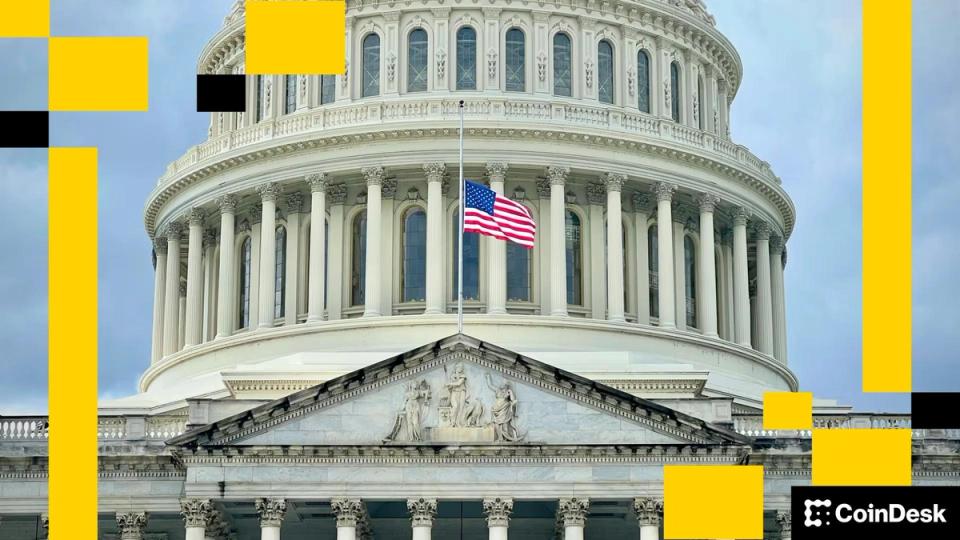The Senate Agriculture Committee released its own draft of a draft market structure bill that addresses digital commodities and how the Commodity Futures Trading Commission could oversee this sector of the crypto market.
You’re reading State of Crypto, a CoinDesk newsletter that looks at the intersection of cryptocurrency and government. Click here to sign up for future editions.
The narrative
We have a new draft law on the structure of the crypto market! Are we any closer to seeing this bill pass Congress? Kind of.
Why it matters
The Senate Agriculture Committee releasing a first draft of the bill is an important step. The draft as released has a number of parts that are likely to be updated or otherwise require agreement between Republicans and Democrats before it can move forward, but at least we now have confirmation that lawmakers and their staff are still working on this.
To break it down
The new draft bill defines digital commodities and explains how Congress would like to see the CFTC regulate them as it moves the agency closer to being the primary spot market regulator for crypto.
The bill’s text contained a number of paragraphs in parentheses indicating areas where lawmakers had not yet reached a firm agreement on what the final text should say. These parenthetical sections contained items as simple as definitions, as well as more complex rulemaking guidance for the CFTC.
“The CFTC plays a critical role in maintaining the integrity and stability of our financial and derivatives markets,” committee chairman John Boozman said in a statement. “As Congress works to expand the authority of the commission to oversee trading of digital assets that are commodities, it is important that we also ensure it has the necessary tools, staff and resources to carry out this new mission, along with its current responsibilities. Strengthening this institution better protects consumers, encourages innovation, promotes transparency and maintains liquid and resilient markets.”
Late. Cory Booker said in a statement that the bill was “a first step” but that lawmakers “still have significant work to do before advancing the legislation out of committee.”
“I am specifically concerned about the lack of resources and bipartisan commissioners at the CFTC, prevention of regulatory arbitrage, as well as the continued corruption of public officials and whether Congress has created the proper safeguards to prevent these misdeeds,” he said. “I encourage my colleagues and external stakeholders to come together to address these issues.”
One provision in the draft would call for the CFTC to have at least two commissioners and minority party commissioners before it could actually begin rulemaking. Another provision touched on conflicts of interest, but both of those provisions had brackets that suggested the wording or the provisions themselves could change before the bill is finalized.
Crypto industry representatives seemed to understand that the bill is still moving forward, despite the recent record government shutdown and the dwindling amount of time left in the year for Congress to get something done.
In a statement, Blockchain Association CEO Summer Mersinger called the release of the draft “another important step,” while DeFi Education Fund CEO Amanda Tuminelli said it was “good to see [Agriculture] The committee is making progress on the market structure.”
Ji Hun Kim, executive director of the Crypto Council for Innovation, called the draft “meaningful positive progress toward establishing a comprehensive, appropriate market structure framework for digital commodities in the United States,” in a statement.
The process still needs to be reconciled with the Senate Banking Committee, Mersinger noted in his statement.
“We hope that the section open to DeFi will be filled with robust developer protections that clearly separate centralized intermediaries from software developers without custody and control over other people’s money,” Tuminelli said.
Looking ahead, the specific path to passage is a bit hazy. A person who works in DC politics told CoinDesk that there are about three work weeks in December for Congress, which severely limits the amount of time available for lawmakers to hold hearings and votes on crypto legislation this year. That means any floor work on the bill is unlikely to happen until next year, this person said, a view echoed by Ron Hammond, head of Policy and Advocacy at Wintermute.
Hammond told CoinDesk earlier this week that one or both committees could hold a markup hearing and vote on passage out of committee by the end of the year, but that would require a lot of work.
And even then, the bills would have to be combined before any possible vote in the Senate. Once that happens, the combined market structure bill would go to the House of Representatives, which could vote on the Senate version (as it did with the Genius Act) or try to insert some of its own priorities.
“I think the House will be in the awkward position of having to take what the Senate produces,” Chainlink Head of Public Policy Adam Minehardt said on CoinDesk TV Thursday.
The House may want to ensure some form of its own bill, the Clarity Act, is included in what President Donald Trump signs, but “the Senate will continue to be in the driver’s seat,” he said.
Regardless of how it shakes out, the bill won’t go to Trump’s desk until the House has a floor vote, and it could take us well into 2026 — and the election season — before he’s able to sign it.
Wednesday
- 3:30 PM UTC (10:30 AM ET) The Senate Banking Committee will hold a confirmation vote on various nominees, including FDIC Chairman nominee Travis Hill.
- 8:00 PM UTC (3:00 PM ET) The Senate Agriculture Committee holds a confirmation hearing for CFTC Chairman nominee Mike Selig.
If you have thoughts or questions about what I’ll be discussing next week or any feedback you’d like to share, feel free to email me at [email protected] or find me on Bluesky @nikhileshde.bsky.social.
You can also join the group conversation on Telegram.
See you next week!



